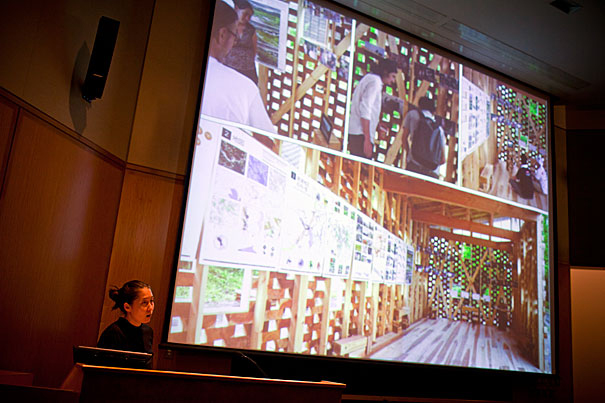Nation & World
-

Crush your goals the Ohtani way
Baseball superstar’s method for acing ambitions can help anyone, says Business School professor
-

How academia can help America heal
First step, says columnist David Brooks, is to understand its role in the problem
-

Can Russia be denied?
Ex-POW joins discussion of four-year conflict ahead of another round of negotiations
-
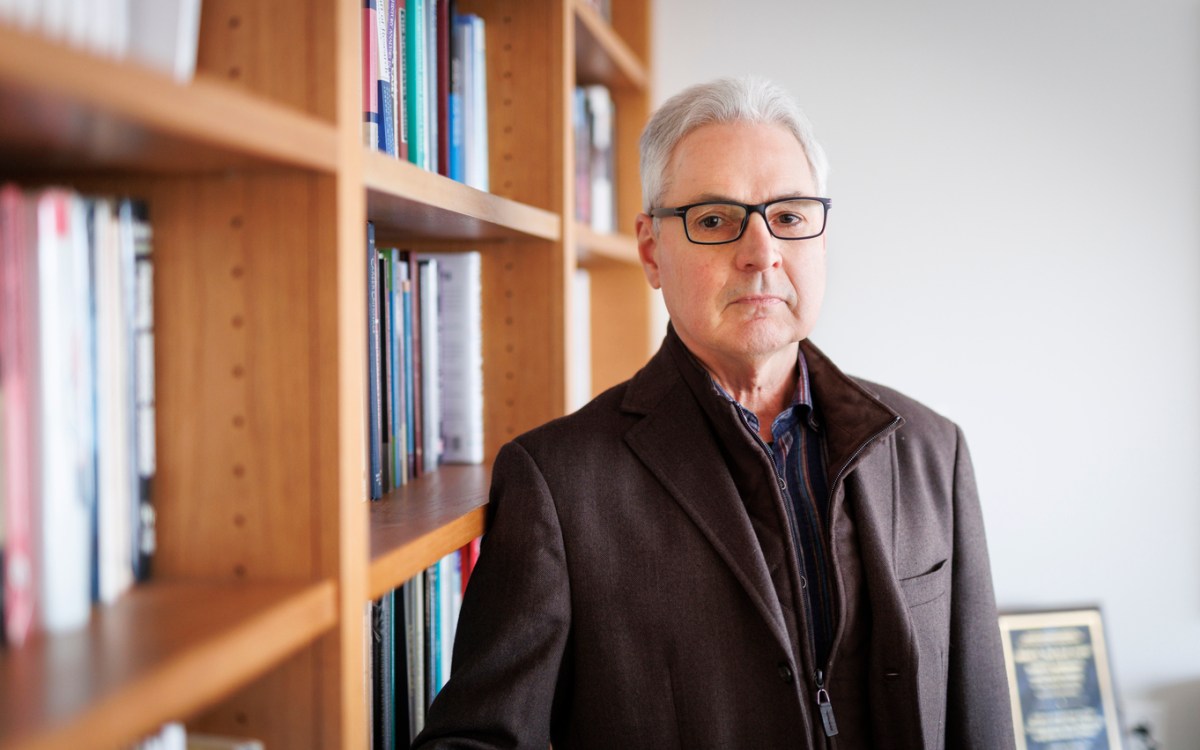
New factor in predicting who becomes criminal: when you were born.
Sociologist Robert J. Sampson investigates plunging arrest rates for youngest millennials
-
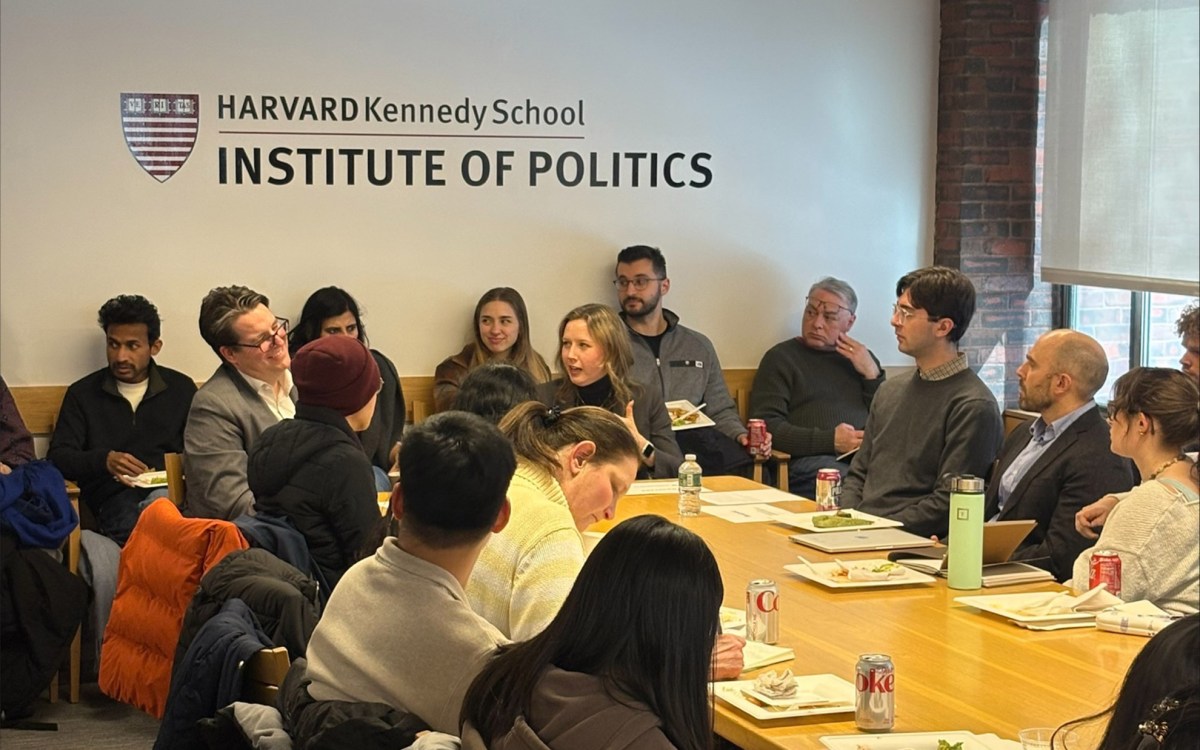
What would the Founding Fathers think of TikTok?
Experts weigh national security concerns against free speech in discussion of video app’s future
-

Worried about how AI may affect foreign policy? You should be.
Experts discuss vulnerabilities, need for oversight of tech development, regulation
-
Status quo blues
Americans suffering through a fourth year of economic hardship and worried about the future are closer than ever to casting aside both major political parties in favor of a post-partisan ticket in the 2012 presidential race, a panel of political experts told an audience at Harvard Kennedy School.

-
Legacy of an Indonesian tsunami
A five-year follow-up study of children orphaned by the 2004 Indian Ocean tsunami says that older children and younger girls were most affected, with lower school achievement, higher rates of work outside the home for boys, and earlier marriage and work inside the home for girls.
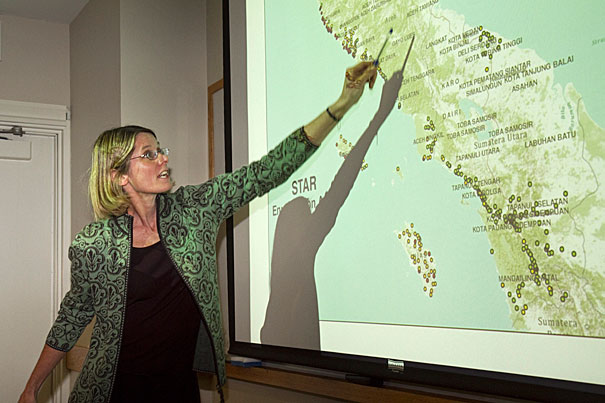
-
A matter of principals
A group of educators and administrators explored the role of principals in promoting effective teaching and learning in the nation’s primary and secondary schools during a discussion at the Harvard Graduate School of Education.
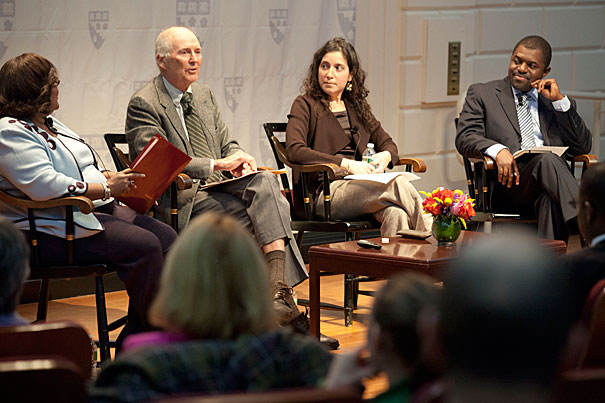
-
A better welcome home
As the country prepares to welcome home large numbers of servicemen and servicewomen from Iraq this winter, the Harvard Kennedy School’s Ash Center for Democratic Governance and Innovation held a conference, “A Better Welcome Home: Transformative Models to Support Veterans and Their Families,” which explored approaches to help veterans connect to their communities and leverage their strengths in a tough job market.
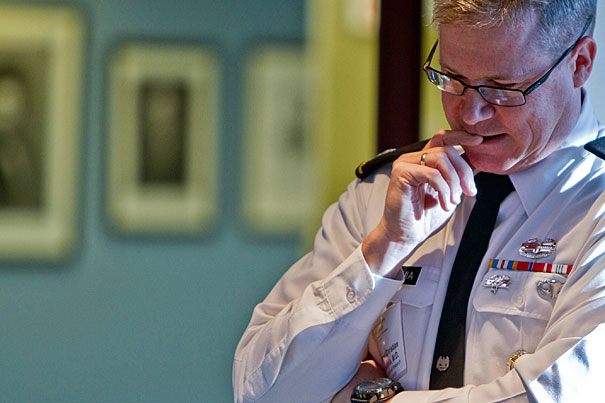
-
Lessons from a leader
At an event sponsored by the Women’s Initiative in Leadership at Harvard’s Institute of Politics, President Drew Faust discussed qualities that make a great leader and offered insights into her own role heading Harvard.
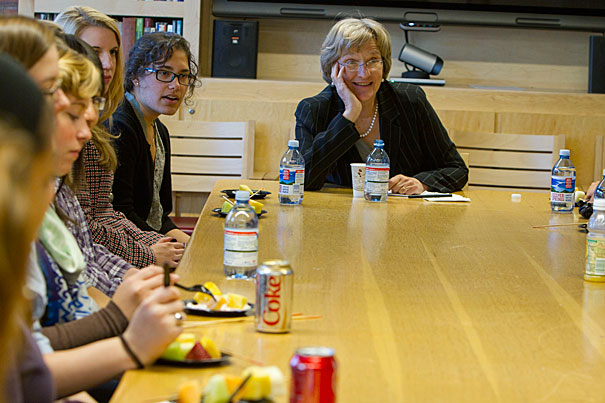
-
Where town meets gown
A Radcliffe and Rappaport symposium explored the important city-university relationship, and areas where each side can benefit the other.
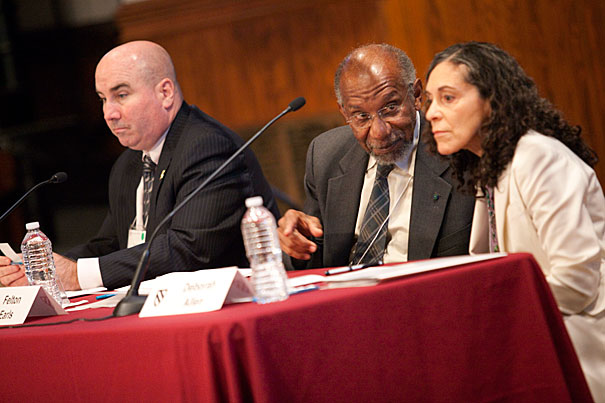
-
Forces beyond nations
Most people would say they live in a globalized world, but a sociology professor favors the model of a denationalized world in which regional organizations increasingly predominate.
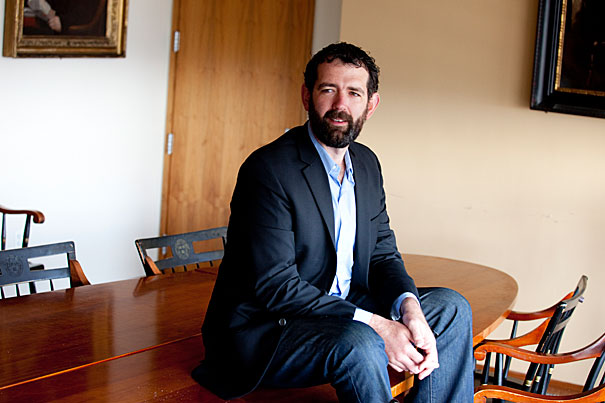
-
Lessons from a Kenyan slum
A sprawling urban pocket of poverty offers a timeless lesson: talent is universal, but opportunity is not.

-
Frank look at marijuana laws
Prohibitions on marijuana use do more harm than good, and it’s time the federal government stepped away from the issue altogether, Rep. Barney Frank, D-Mass., told a crowd at Harvard Law School Oct. 18.
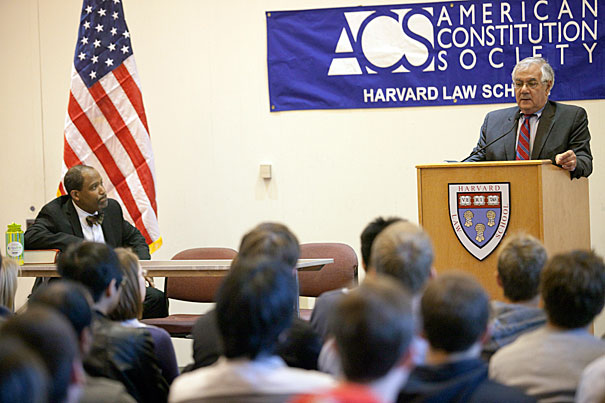
-
Beyond the kitchen, to the B-School
Renowned chef Ferran Adrià visited Harvard Business School Oct. 13 to announce a challenge to business students: a competition to design the new venture that will expand his creative and culinary empire.
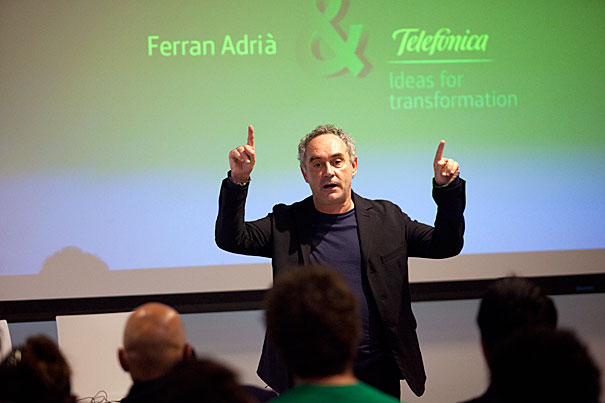
-
Wanted: Ways to battle corruption
The Edmond J. Safra Center for Ethics is offering $8,000 in prizes for novel ideas on how to monitor and undercut institutional corruption.

-
7 billion, and climbing
U.N. official Babatunde Osotimehin says that educating women and girls worldwide is a critical step in slowing population growth.
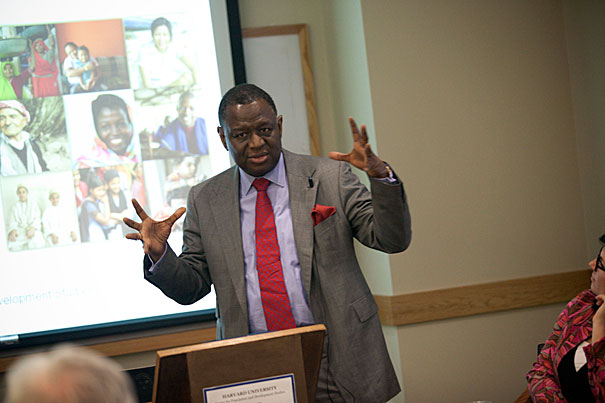
-
The 99 percent solution
Occupy Wall Street, the inspiration for hundreds of similar economic protests, is “an angry work in progress” that drew experts’ attention during two programs at Harvard.
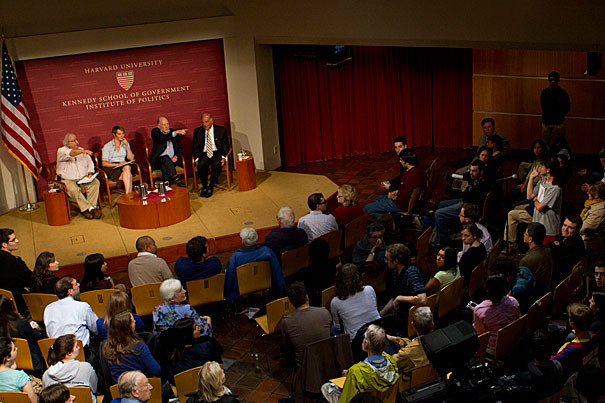
-
Teaching the teachers
Charged with enhancing undergraduate education in the Faculty of Arts and Sciences, the Derek Bok Center for Teaching and Learning annually assists scores of faculty members and teaching fellows.
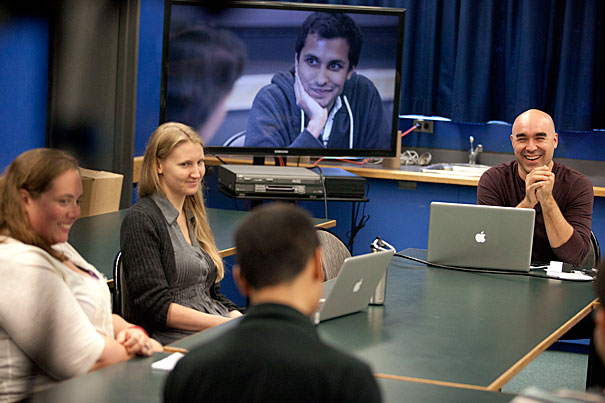
-
Widening national security concerns
A new collaboration between Harvard Law School and the Brookings Institution hopes to help define the widening, post-9/11 reality of what constitutes a threat to society.

-
Designated Drivers
Barry R. Bloom Harvard University Distinguished Service Professor Joan L. and Julius H. Jacobson Professor of Public Health, Harvard School of Public Health
-
Alumni win Nobel Prize for economics
Two alumni of Harvard’s Faculty of Arts and Sciences, who received their Ph.D.s from the Graduate School of Arts and Sciences, won the Nobel Prize for economics Oct. 10, 2011 for their work on change and the macroeconomy.

-
Sirleaf wins Nobel Peace Prize
Liberian President Ellen Johnson Sirleaf, a Harvard Kennedy School alumna, is one of three recipients of the 2011 Nobel Peace Prize for her efforts to promote peace, democracy, and women’s rights.

-
Roundtable airs immigration, research funding issues
A small group of business and higher education leaders met in Washington to discuss the importance of attracting the world’s best students, the economic stimulus provided by government-funded research, and the safeguards of intellectual property protection.
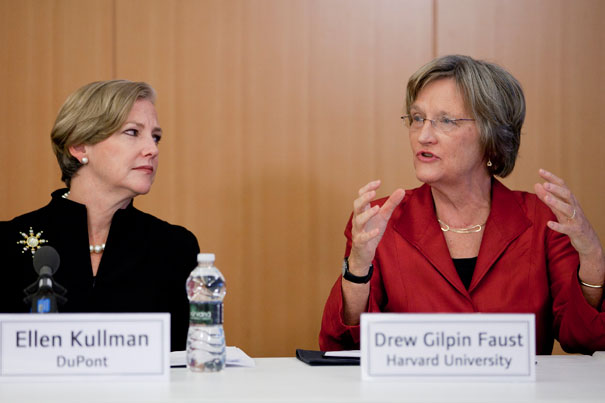
-
Cantor: University research a key for jobs
House Majority Leader Eric Cantor says that universities and businesses are key contributors to the innovation that drives economic growth in this country but that congressional attention to research funding will have to wait until broader budget talks are completed.
-
Untold war stories
Women’s voices have long been absent from stories of war — and from the process of peacemaking. A group of women scholars and filmmakers gathered at the John F. Kennedy Jr. Forum Oct. 4 to explore those untold stories in conjunction with the new PBS series “Women, War, and Peace.”

-
Travel, by design
Students at the Harvard Graduate School of Design mix reality and research during travel as Community Service Fellows, doing everything from helping tsunami victims to studying activist art.

-
Sorting immigration facts, fiction
A conference on “The Futures of Immigration: Scholars and Journalists in Dialogue” brought together academics and working reporters to hash out immigration topics such as the law, economics, and the future impact of the new arrivals’ children on U.S. labor markets and culture.
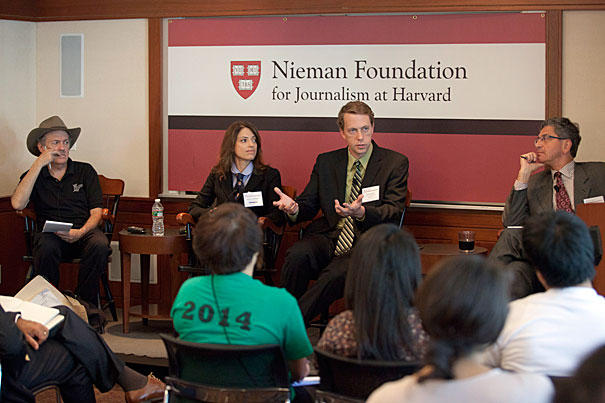
-
What makes a thinker
In a lecture at the Harvard Graduate School of Education, retiring Professor David Perkins explored the evolution of the teaching of thinking, including its history, obstacles, advances, and likely future.
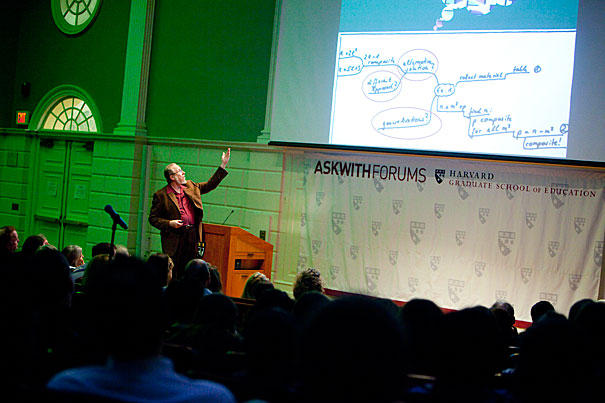
-
Exploring Islam in Nigeria
A panel of scholars explored the topic of Islam in Nigeria in preparation for the visit to Harvard by Alhaji Muhammad Sa’ad Abubakar III, the Sultan of Sokoto.
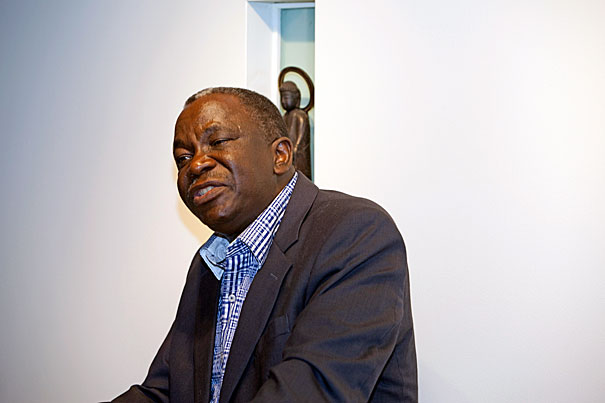
-
Chile’s president pushes progress
Chilean President Sebastián Piñera said during a Harvard Kennedy School speech on Sept. 23 that he hopes to lead Chile into the ranks of fully developed nations by the end of the decade.
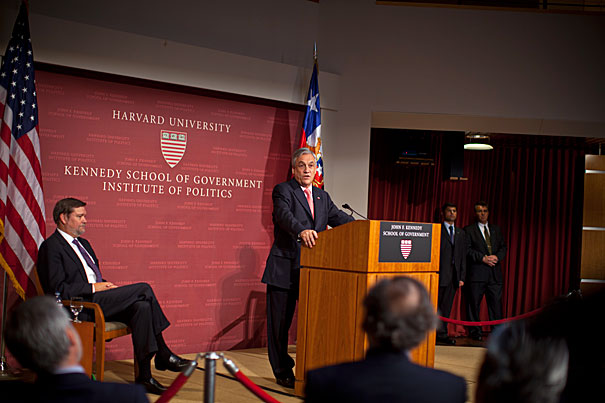
-
Improving South African schooling
Groups of educators and administrators from South Africa took part in a series of Harvard-sponsored programs, aimed at transforming leadership in that nation’s public schools.
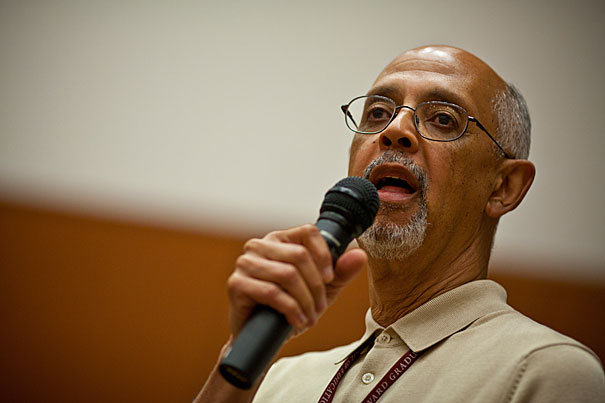
-
Recording a horrific history
Through its Nuremberg Trials Project, the Harvard Law School Library is digitizing parts of a massive trove of records from the postwar trials of high-ranking Nazi political and military leaders.

-
Mau Mau at peace
With a lawsuit against the British making its way through the courts, elderly Kenyan fighters share tales of battling the colonial regime.
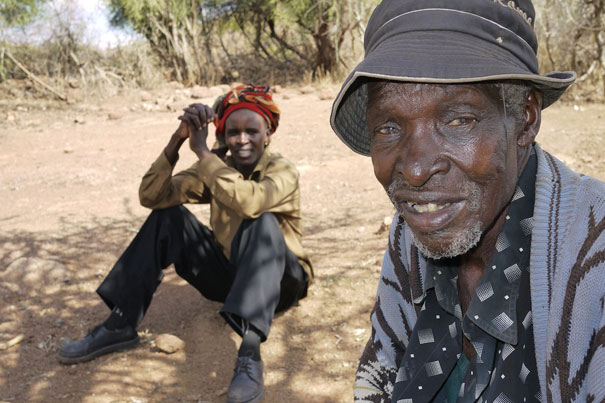
-
Uncertainty remains factor in Japan
Uncertainty about the long-term effects of low-level radiation and despair over the bleak employment picture in Japan are contributing to alarming rates of suicide among those affected by the cascading disasters of the March 11 earthquake, tsunami, and meltdown of a nuclear reactor, Harvard experts found on recent visits.
